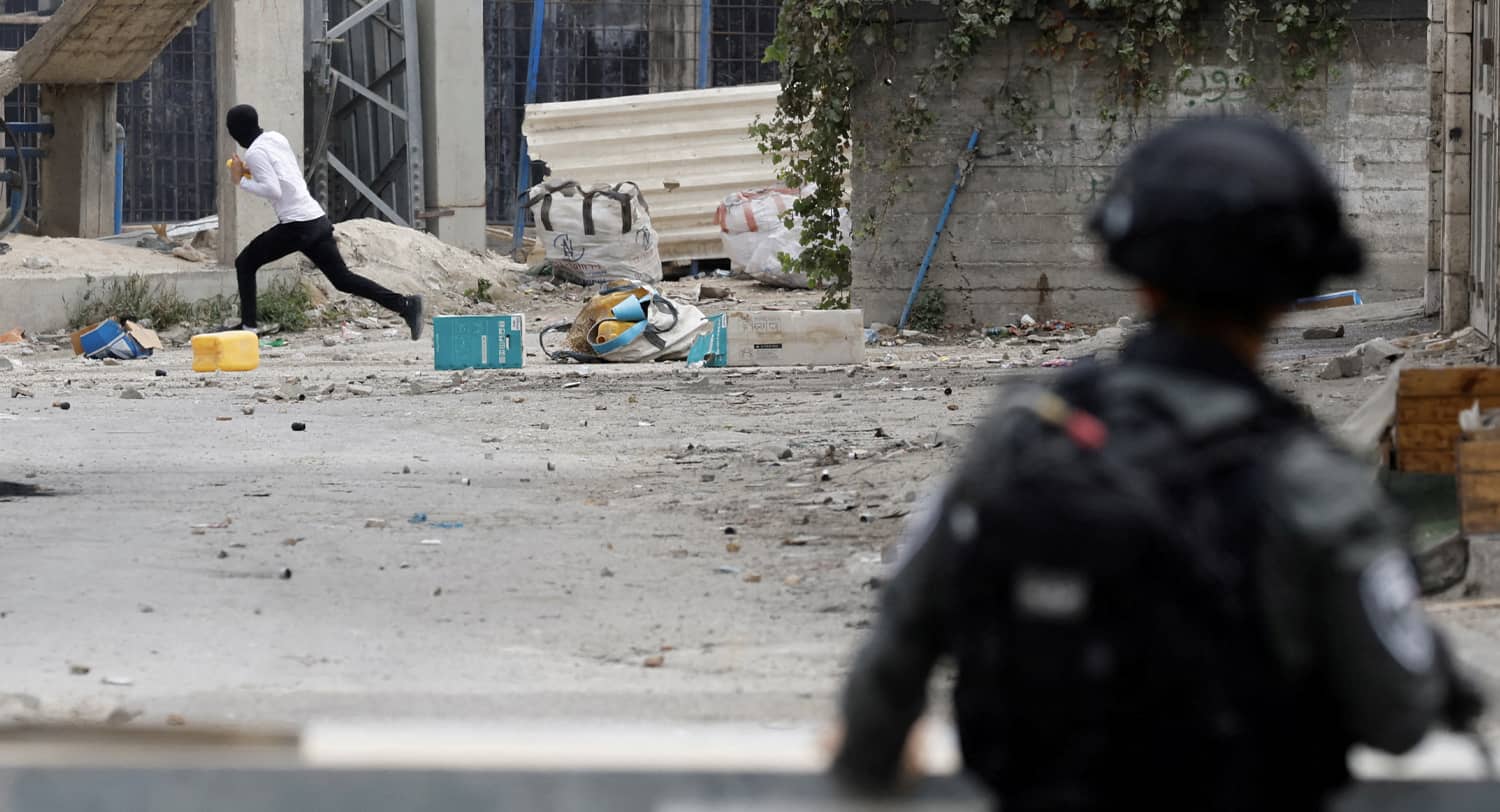As Jews all around the world observed the three-week period of the High Holy Days, tensions kept rising in the West Bank and Jerusalem: two Israeli soldiers, one of them a young woman, were killed and several wounded in recurrent shooting attacks, and riots broke out in several areas of Jerusalem. This is not unprecedented: bouts of violence often happen in this period. Radical activists on the Palestinian side latch on to the fantasy utterances by a tiny but vocal group in Israel, advocating the rebuilding of the Third Temple, so as to trumpet that “al-Aqsa is in danger” and foment violence against Jews at prayer at the Wailing Wall. Roads and destinations busy with holiday travelers offer targets for terror. This year, however, two added factors enhanced the sense of impending escalation. They also posed a painful dilemma to the present Israeli coalition government, which faces searing nationalist criticism from Netanyahu and his allies as the country heads toward elections on November 1, 2022.
To begin with, there is the Iranian factor. The al-Quds Force—the international arm of the Iranian Revolutionary Guard Corps (IRGC)—has been busy in recent months, funneling money, arms, and instruction to Palestinian Islamist organizations active throughout the West Bank and particularly in the northern cities of Nablus and Jenin. Back in 2014, Iran’s Supreme Leader Ali Khamenei tweeted a nine-point creed about the necessity to destroy Israel and the ways to bring it about. The West Bank, he wrote, must be turned into another Gaza. This was not a suggestion but a plan of action.
Both Palestinian Islamic Jihad (PIJ), which works for the Iranians, and Hamas, which works with them, have a strong presence in these areas. So do young activists unassociated with the existing organizations (some of them are renegade Fatah members) who go by the name of ‘Arin al-usud, or “the Lion’s Den.” Violence has been on the rise. This, in turn, has led to Israeli counteraction. Since the short but deadly wave of terrorism in the spring of 2022, much of IDF Operation “Break the Wave”—intense, almost nightly raids (driven by actionable intelligence) to apprehend terrorists and prevent planned actions—has been conducted in these two towns and adjacent areas. It is this ongoing operation which has led, among other incidents, to the death during a firefight of Al Jazeera journalist Shireen Abu Akleh in May, and to the round of fighting with PIJ in Gaza (which erupted in response to the arrest of the PIJ commander in the West Bank) in early August 2022.
Now, with the nuclear talks at the point of crisis, with internal tensions in Iran erupting, and with Israel’s campaign against Iran in Syria steadily intensifying, Tehran has even more reasons to encourage an outbreak of violent action originating in the West Bank and spreading to Jerusalem and beyond. This would turn Israel’s attention toward this challenge rather than toward posing a credible military threat aimed at stopping Iran’s nuclear project—an option that stood at the center of Prime Minister Yair Lapid’s speech at the UN General Assembly.
The second contributing factor is the evident weakening, if not collapse, of the security control by the Palestinian Authority (PA) in these parts. This failure has direct implications on the ground, as the Islamist terror groups, as well as even activists from within the ranks of Mahmoud Abbas’s own Fatah movement, are organizing for anti-Israeli violence.
This Iranian-encouraged threat, compounded by Palestinian weakness, was recently on display as violent activists attacked the Palestinian security forces in the streets of Nablus, following the arrest of a Hamas terrorist wanted by Israel and the PA alike. Israel, as a result, faces an acute dilemma. To rely on the Palestinian security forces is to risk the very real possibility that they will fail to prevent deadly attacks on Israelis. In a heated political season, the right wing is already accusing the government of being too soft on the PA, which still incites against Israel, teaches hate in its schoolbooks, and pays stipends to terrorists’ families. Mahmoud Abbas’s folly in Germany—where he was asked to admit culpability for the attack on the Munich Olympic Games fifty years ago, and in response blurted an angry retort about Israel committing “50 holocausts” against the Palestinians—did not do much to build Israel’s goodwill toward him nor trust in his willingness or ability to stop the violence.
Israel thus prefers to rely mainly on its own actions and capabilities, which already led to the apprehension of more than a thousand would-be perpetrators. At the same time, the Israeli defense establishment has no wish to weaken the PA security forces to the point of collapse—nor does it relish any prospect of dismantling the PA and taking over the governance of what are now areas under full Palestinian control. The PA, for all its shortcomings, is still better than a Hamas takeover, rampant Iranian subversion, or chaos. The defense establishment prefers to retain the structures of cooperation with the PA. Defense Minister Benny Gantz and President Isaac Herzog have regular communications with Abbas (who called to congratulate them both for the Jewish new year).
Prime Minister Lapid, for his part, decided to return to the “Two States for Two Peoples” paradigm in his speech at the UN, despite fierce criticism from Netanyahu. To sustain their cooperation, and to reverse their decline toward utter dysfunction, Abbas and those close to him (like his potential successor, Hussein al-Sheikh) presumably need a “diplomatic horizon” to which they can still aspire. Lapid was willing to provide it. Whether this will bind the next Israeli government, let alone provide it with a way to resolve the security dilemma, remains to be seen.

